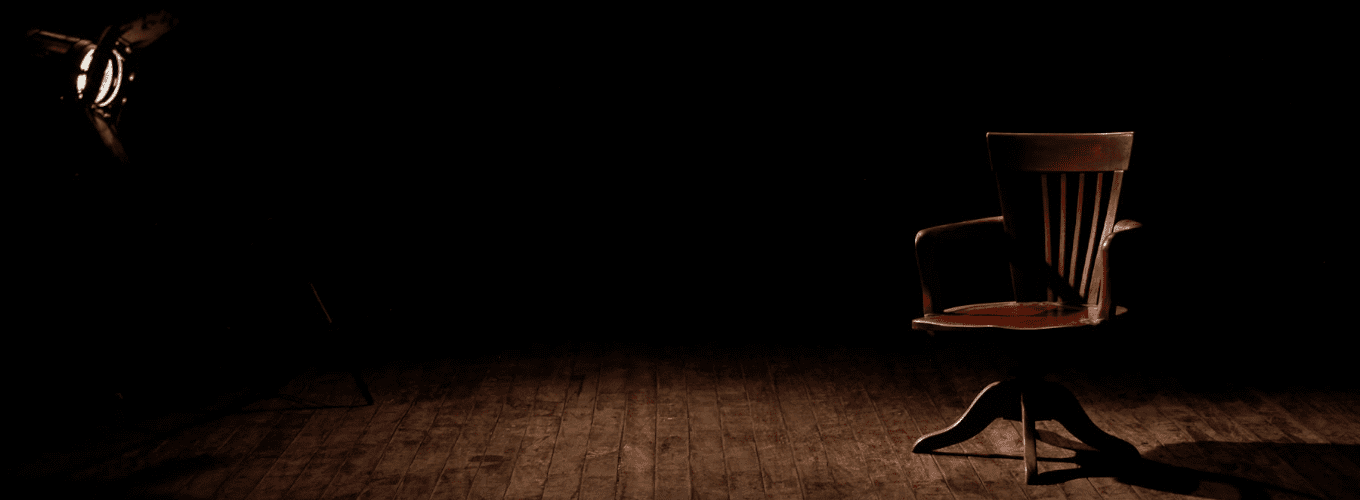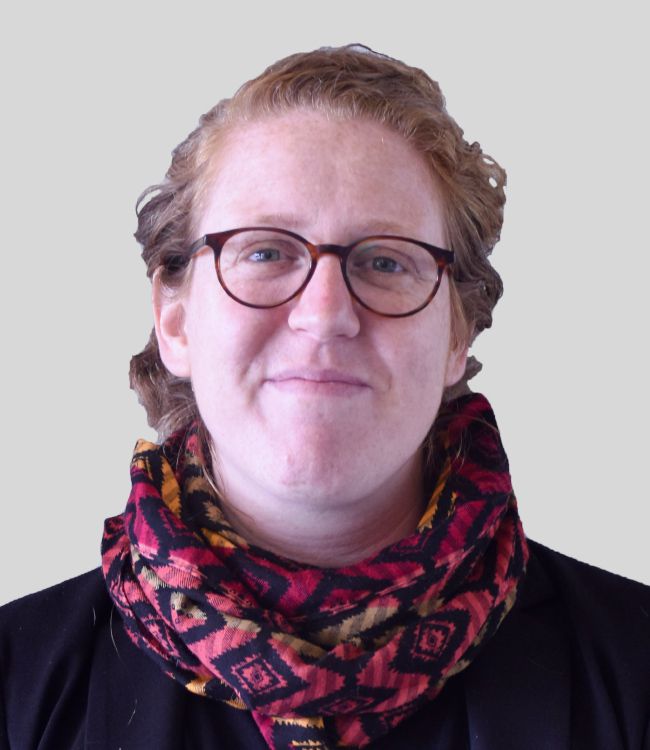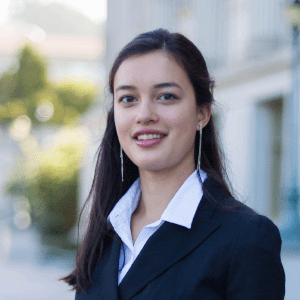
Speaker Spotlight: Joeva Rock
Undergraduate science communication intern Mira Cheng sits down with speakers from the weekly IGI Seminar Series to discuss their innovations, motivations, and eclectic hobbies.
Dr. Joeva Rock is a Visiting Research Scholar in the Department of International Studies at the University of San Francisco. I interviewed Dr. Rock when she spoke at the IGI on March 10th, 2020. An abridged version of our conversation appears below.
 MC: Could you please tell me a little bit about the journey to your professional role today?
MC: Could you please tell me a little bit about the journey to your professional role today?
JR: “I’m an anthropologist, I got my Ph.D. in 2018 from American University. From a young age, I had always been really interested in people, broadly speaking, and how people organize themselves, how people move through life, and how people interact with their environments, whether natural or a built.
I was born here in San Francisco, and at the ripe age of eight I was plucked from my amazing upbringing [and moved] to a place in suburban Minnesota. Even at that young age, it was strange: things were familiar, but also really strange. That move had me thinking about the different ways that people act, talk, and organize themselves. That it could vary so much just a short plane ride away—it blew my mind.
When I was an undergraduate at UC San Diego, I spent my sophomore year at the University of Ghana. And it was there that I really started gaining an interest in Ghana and development. I was studying [development] at the university, but the theories I was reading about did not translate to the things I saw. That year, the economy crashed here in the US, we also elected Barack Obama, and those two things fundamentally changed my experience as an undergraduate. When I got back to the US, my parents were out of jobs, my peers’ parents were out of jobs. I started thinking about how what I was experiencing here in the US was connected to what my peers in Ghana were experiencing, so I became really interested in global systems.
I then worked for a Ghanaian NGO for a year after undergrad and again development looked so different as a practitioner than on paper. And I realized I had more questions, so I decided to go back to graduate school to be able to ask bigger questions around political change, political economy, development. I was incredibly interested in how the country of my birth, the US, and how the country that I had been working and living in, Ghana, were connected in a variety of ways. I decided to keep looking at development aid and the rest is history.”
MC: How did you come to work on the project that you presented today in the seminar lecture?
JR: “In 2013, I was already in my Ph.D. and I was researching issues in higher education in Ghana. I was on Twitter one day procrastinating, I didn’t want to do my homework, and I saw this article about this group in Ghana that had been invited to a meeting with the US Embassy, who had said ‘No, we don’t want to go to a closed door meeting about biotechnology.’ And I was just like, ‘Who are these people? What is this thing? What do they mean by biotechnology?’ All these questions… I had no background in agriculture or biotech, [but] I was just so interested in these folks, this group is making a big stink. I emailed them and said, ‘Hey, I’m a Ph.D. student, can I ask you some questions?’ and they responded, ‘Yes, what do you want to know?’
The more I learned, the more I became interested in the complicated plant breeding collaborations that constitute a majority of GMO projects in Africa. I became interested in tracking how people, crops, and ideas moved from the US to places like Ghana, to Colombia, to Australia. So what [started as] a single tweet, turned into this much larger project of working with Ghanaian scientists and activists and government officials to better understand why genetically modified crops had become so controversial in Ghana and what role, if any, they have in the future of the country.”
MC: What is a challenge that you have had to overcome?
JR: “The [GMO] topic itself is very controversial, whether we’re here in the US or in Ghana, so it was and it has remained difficult sometimes to make connections with folks that I want to talk to. Having people take me seriously as a researcher [has been challenging]. For instance, sometimes activist groups have believed that I’m working undercover, sometimes government officials have thought that I was also undercover, but as an activist. [I try to] really display that as a researcher, as an anthropologist, [I’m] deeply interested in understanding this question and the situation better. So gathering data has been really difficult, but rewarding.”
MC: What are the similarities and differences of the GMO debate in the US versus in Ghana?
JR: “I mean similarities are that folks are really dug into binary beliefs. ‘I’m either pro-GMO or anti-GMO.’ But what I see on the ground in Ghana all the time is that that is not representative of how people actually feel. People might say that they’re pro or they might be involved in a project, but they also have their concerns. Likewise, groups might say they’re anti-GMO, but at the end of the day [say], ‘I’m not worried about the technology itself, I just worry about how it’s being brought into my country.’
One of the big differences is [I think] in the US, at least what I see in public, [the GMO debate] is focused around distrust of the companies that are involved. And in Ghana that’s certainly there, but a lot of Ghanaian activists or anti-GMO folks place their argument in historical context first, and that informs how people then think about the companies. It’s not necessarily that people are opposed to the companies, but given the history of failed past development projects, people worry that the same could happen again in the future.
I think it’s really important that people understand that folks have their beliefs for a reason—whether or not you agree with that person’s reasons. Something I’d like to emphasize is that I think sometimes folks who support biotech or support GMOs are really quick to see those who don’t and say they’re anti-science or they don’t know the science. But in fact, for many folks in Ghana and I would assume here in the US as well, it’s not about the science, it’s about the political economy of it all. I think that’s an important thing for folks to know.”
MC: What are some takeaways for IGI, and other biotechnology institutes and companies, that you can offer?
JR: “I’m not in a place to give advice to IGI, but what I think would be really cool to see moving forward, whether at IGI or elsewhere, is an increase in collaborations between folks in the natural sciences, in the social sciences, and in the humanities. What would it look like to bring a plant biologist, a historian, an anthropologist, and an economist in a room together? To me that offers some really exciting possibilities. And maybe IGI is well placed to do that, given the newness of the institute and the way it has already begun to think about scientific inquiry, not just on the bench, but also in public.”
MC: What is something that you do a lot that people wouldn’t necessarily expect?
JR: “I really like playing Zelda. I recently bought a Nintendo Switch and I’ve been playing Zelda a lot more than I’d like to admit. I’m really bad at it, but I really enjoy playing it.”
MC: If you could describe yourself in three words, what would they be?
JR: “Passionate, inquisitive, easy-going.”
MC: What advice would you give your younger self?
JR: “I would tell my younger self to write more things down and print photographs.”
 By
Mira Cheng
By
Mira Cheng